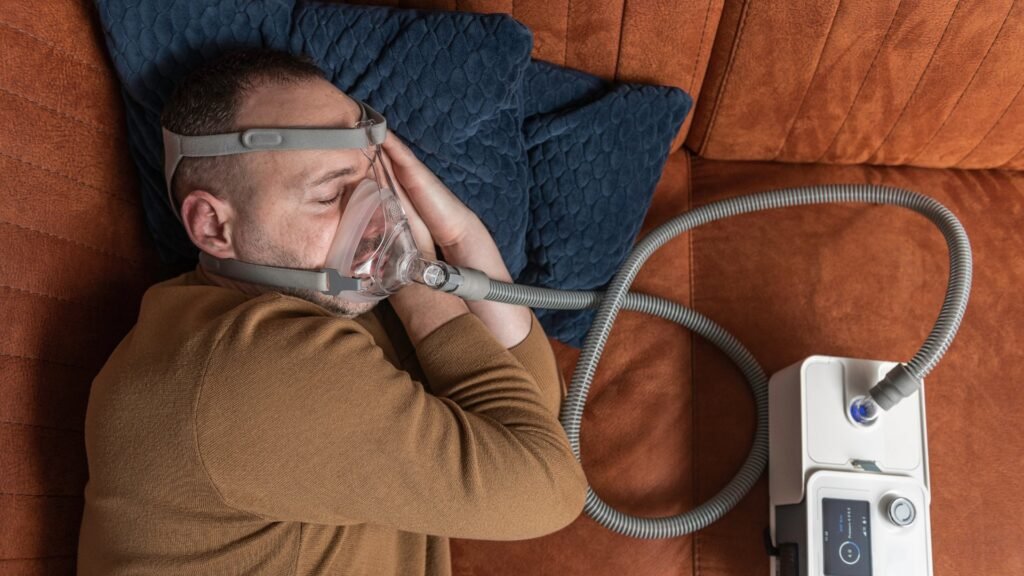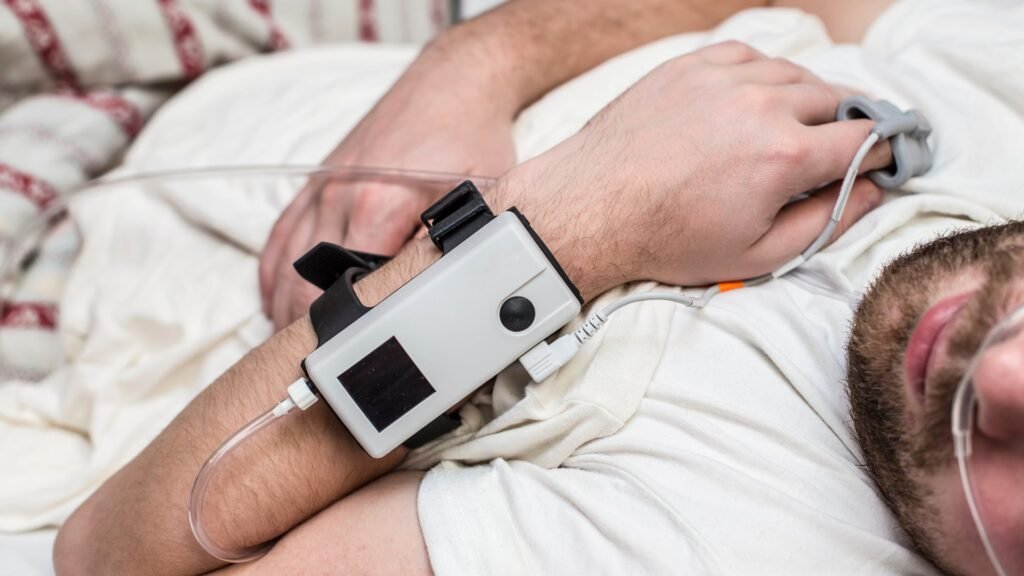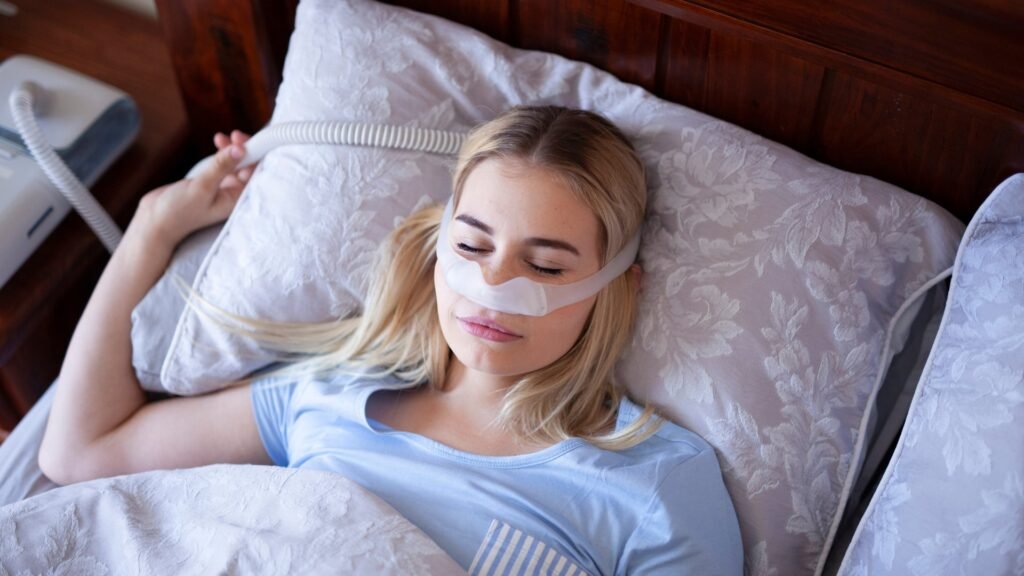Book Appointment Now

Understanding Sleep Apnea: Signs, Symptoms, and Solutions
Sleep apnea is a common yet often overlooked sleep disorder that can have significant impacts on your health and quality of life. Characterized by repeated interruptions in breathing during sleep, sleep apnea can lead to various complications if left untreated. Understanding the signs, symptoms, and solutions for sleep apnea is crucial for managing the condition effectively and improving overall well-being. In this blog, we will delve into what sleep apnea is, how to recognize it, and the various treatment options available.
What is Sleep Apnea?
Sleep apnea is a serious sleep disorder in which a person’s breathing repeatedly stops and starts during sleep. There are three main types of sleep apnea:
- Obstructive Sleep Apnea (OSA): This is the most common form and occurs when the muscles in the throat relax excessively, causing a temporary blockage of the airway.
- Central Sleep Apnea (CSA): Unlike OSA, this type is related to the brain’s inability to send proper signals to the muscles that control breathing, resulting in disrupted breathing patterns.
- Complex/Mixed Sleep Apnea Syndrome: This type is a combination of both obstructive and central sleep apnea, where the individual experiences characteristics of both conditions.
Each type of sleep apnea has unique causes and symptoms, but all require medical attention to prevent serious health consequences. Understanding these types is the first step toward recognizing and treating sleep apnea effectively.

Signs and Symptoms of Sleep Apnea
Recognizing the signs and symptoms of sleep apnea is crucial for early diagnosis and treatment. Common symptoms include:
- Loud Snoring: One of the most noticeable signs, especially for obstructive sleep apnea, is loud and chronic snoring, which may be interrupted by periods of silence followed by gasping or choking sounds.
- Gasping for Air During Sleep: Individuals with sleep apnea often wake up suddenly feeling short of breath, which can be alarming and disrupt restful sleep.
- Excessive Daytime Sleepiness: Due to poor quality sleep, individuals with sleep apnea often feel extremely tired and drowsy during the day, which can affect their productivity and overall quality of life.
- Morning Headaches: Frequent morning headaches can result from repeated drops in blood oxygen levels during the night.
- Difficulty Concentrating: Cognitive functions such as concentration, memory, and decision-making can be impaired by the lack of restorative sleep.
- Mood Changes: Irritability, depression, and anxiety are common in people with untreated sleep apnea due to chronic sleep deprivation.
- Dry Mouth or Sore Throat Upon Waking: Breathing through the mouth during sleep can cause dryness and discomfort in the throat.
These symptoms may vary in intensity and frequency, but if you or someone you know experiences several of these signs, it is important to seek medical advice for a proper diagnosis.
Risk Factors for Sleep Apnea
Several factors can increase the risk of developing sleep apnea, including:
- Obesity: Excess weight, particularly around the neck, can increase the likelihood of airway obstruction during sleep.
- Neck Circumference: A thicker neck can result in a narrower airway, making it more likely for breathing to be obstructed.
- Age: Sleep apnea is more common in older adults, although it can affect individuals of any age.
- Gender: Men are more likely to develop sleep apnea than women, although the risk for women increases with menopause.
- Family History: A family history of sleep apnea can increase your risk, suggesting a genetic predisposition.
- Use of Alcohol, Sedatives, or Tranquilizers: These substances relax the muscles in your throat, which can worsen obstructive sleep apnea.
- Smoking: Smokers are more likely to have sleep apnea due to increased inflammation and fluid retention in the upper airway.
- Nasal Congestion: Difficulty breathing through the nose, whether from an anatomical problem or allergies, can contribute to sleep apnea.
Understanding these risk factors can help identify individuals who are more susceptible to sleep apnea, enabling early intervention and management.
Diagnosing Sleep Apnea
Accurate diagnosis of sleep apnea is essential for effective treatment. The process typically involves the following steps:
- Medical History and Physical Examination: Your healthcare provider will review your symptoms and medical history, and perform a physical examination to identify any physical factors contributing to sleep apnea.
- Sleep Studies: The most definitive method for diagnosing sleep apnea is a sleep study, also known as polysomnography. This test involves spending a night at a sleep center where various bodily functions are monitored, including brain activity, eye movements, heart rate, blood oxygen levels, and breathing patterns.
- Home Sleep Apnea Testing: For some patients, home sleep apnea testing may be an option. This involves using a portable monitoring device that records similar data to a sleep study, but in the comfort of your own home. While not as comprehensive, it can be a convenient and effective alternative for certain cases.
Early diagnosis and intervention are critical in managing sleep apnea and preventing the associated health risks. Healthcare providers play a vital role in identifying and guiding patients through the diagnostic process.

Health Implications of Untreated Sleep Apnea
Ignoring or neglecting sleep apnea can lead to a range of serious health complications, including:
- Cardiovascular Problems: Untreated sleep apnea significantly increases the risk of high blood pressure, heart attacks, stroke, and irregular heartbeats (arrhythmias). The repeated drops in blood oxygen levels during sleep put a strain on the cardiovascular system.
- Type 2 Diabetes: Sleep apnea is associated with insulin resistance, which can lead to type 2 diabetes. The lack of restorative sleep can disrupt glucose metabolism and increase the risk of developing diabetes.
- Cognitive Impairment: Chronic sleep deprivation from sleep apnea can lead to memory problems, difficulty concentrating, and decreased cognitive function, impacting daily activities and quality of life.
- Daytime Fatigue: Persistent fatigue can lead to poor performance at work or school, increased risk of accidents, and a reduced ability to engage in social and recreational activities.
- Complications During Surgery: Undiagnosed sleep apnea can increase the risk of complications during and after surgery, particularly with anesthesia and pain medications.
Addressing sleep apnea promptly is crucial to mitigate these health risks and improve overall well-being. Regular follow-ups and adherence to treatment plans can significantly enhance the quality of life for individuals with sleep apnea.
Treatment Options for Sleep Apnea
Effectively managing sleep apnea involves a combination of lifestyle changes, medical treatments, and sometimes surgical interventions. Here are the primary treatment options:
- Lifestyle Modifications:
- Weight Loss: Reducing excess weight can significantly decrease the severity of obstructive sleep apnea.
- Sleep Position Changes: Sleeping on your side instead of your back can prevent the tongue and soft tissues from blocking the airway.
- Avoiding Alcohol and Sedatives: These substances relax the muscles in your throat, exacerbating sleep apnea symptoms.
- Medical Treatments:
- Continuous Positive Airway Pressure (CPAP): The most common and effective treatment for obstructive sleep apnea, CPAP involves wearing a mask that delivers steady air pressure to keep the airways open during sleep.
- Oral Appliances: Custom-fitted devices worn in the mouth can reposition the jaw and tongue to help keep the airway open.
- Medication: In some cases, medications may be prescribed to help manage central sleep apnea or related conditions.
- Surgical Options:
- Uvulopalatopharyngoplasty (UPPP): This surgery involves removing excess tissue from the throat to widen the airway.
- Inspire Therapy: A device implanted in the chest that stimulates the nerves controlling the tongue to keep the airway open during sleep.
- Genioglossus Advancement (GA): A procedure that moves the tongue muscle attachment forward, reducing airway obstruction.

Coping and Living with Sleep Apnea
Managing sleep apnea is an ongoing process that involves regular monitoring and lifestyle adjustments. Here are some strategies to help cope with the condition:
- Maintain a Healthy Lifestyle: Regular exercise, a balanced diet, and avoiding smoking and alcohol can improve sleep quality and overall health.
- Practice Good Sleep Hygiene: Establish a regular sleep schedule, create a comfortable sleep environment, and avoid caffeine and heavy meals before bedtime.
- Stay Compliant with Treatment: Adherence to prescribed treatments like CPAP therapy or oral appliances is crucial for managing symptoms and preventing complications.
- Seek Support: Join support groups or seek counseling to help deal with the emotional and psychological aspects of living with sleep apnea.
In conclusion, sleep apnea is a serious condition that can significantly impact your health and quality of life if left untreated. Recognizing the signs and symptoms, understanding the risk factors, and seeking timely medical intervention are crucial steps in managing this disorder. With the right treatment and lifestyle changes, individuals with sleep apnea can lead healthier, more restful lives.
If you or a loved one are experiencing symptoms of sleep apnea, don’t wait to seek help. Schedule a consultation with Dr. Ritesh to discuss your symptoms and explore the best treatment options for your condition. Visit our website or contact our clinic to book an appointment and take the first step towards better sleep and improved health.


